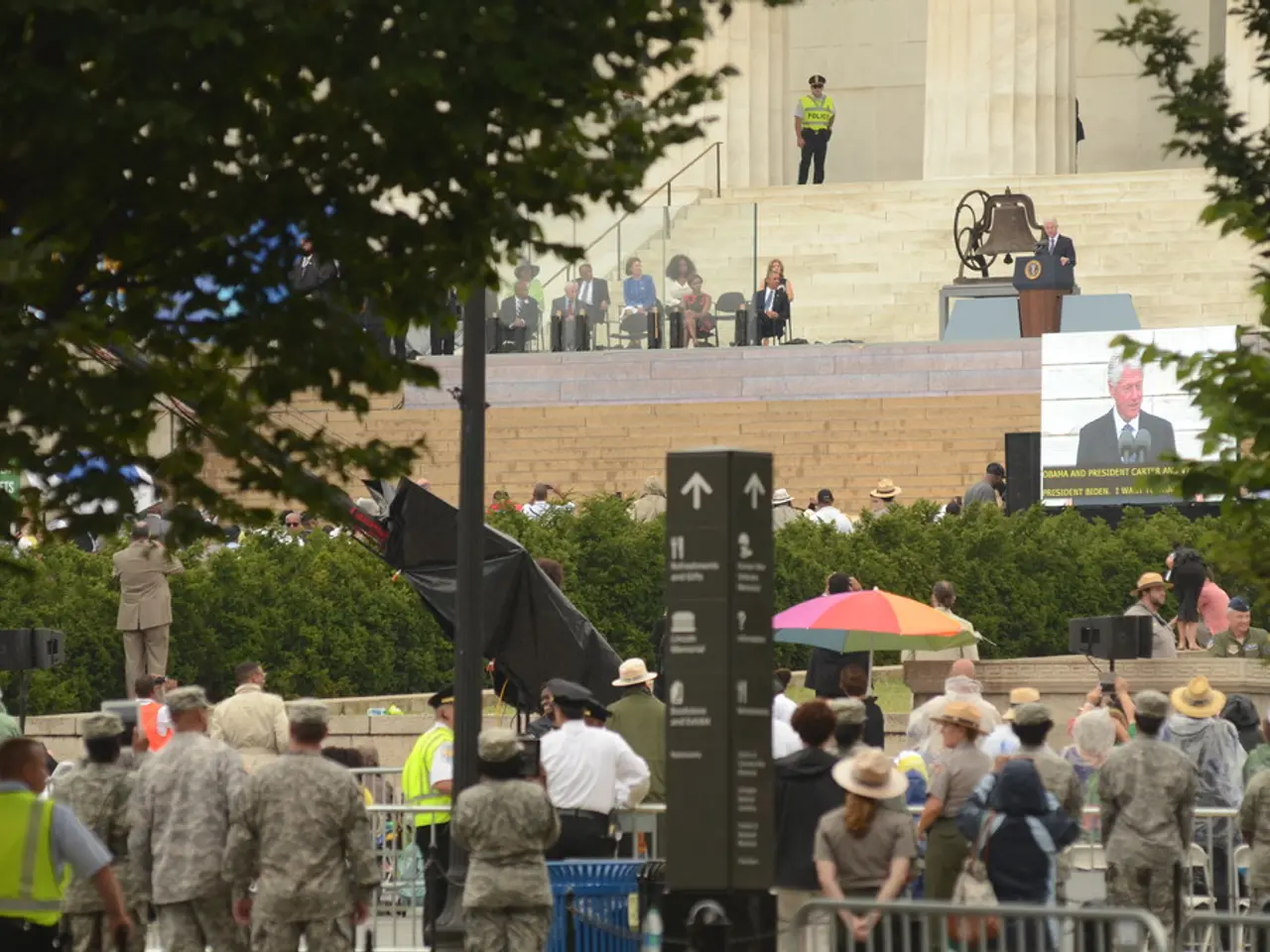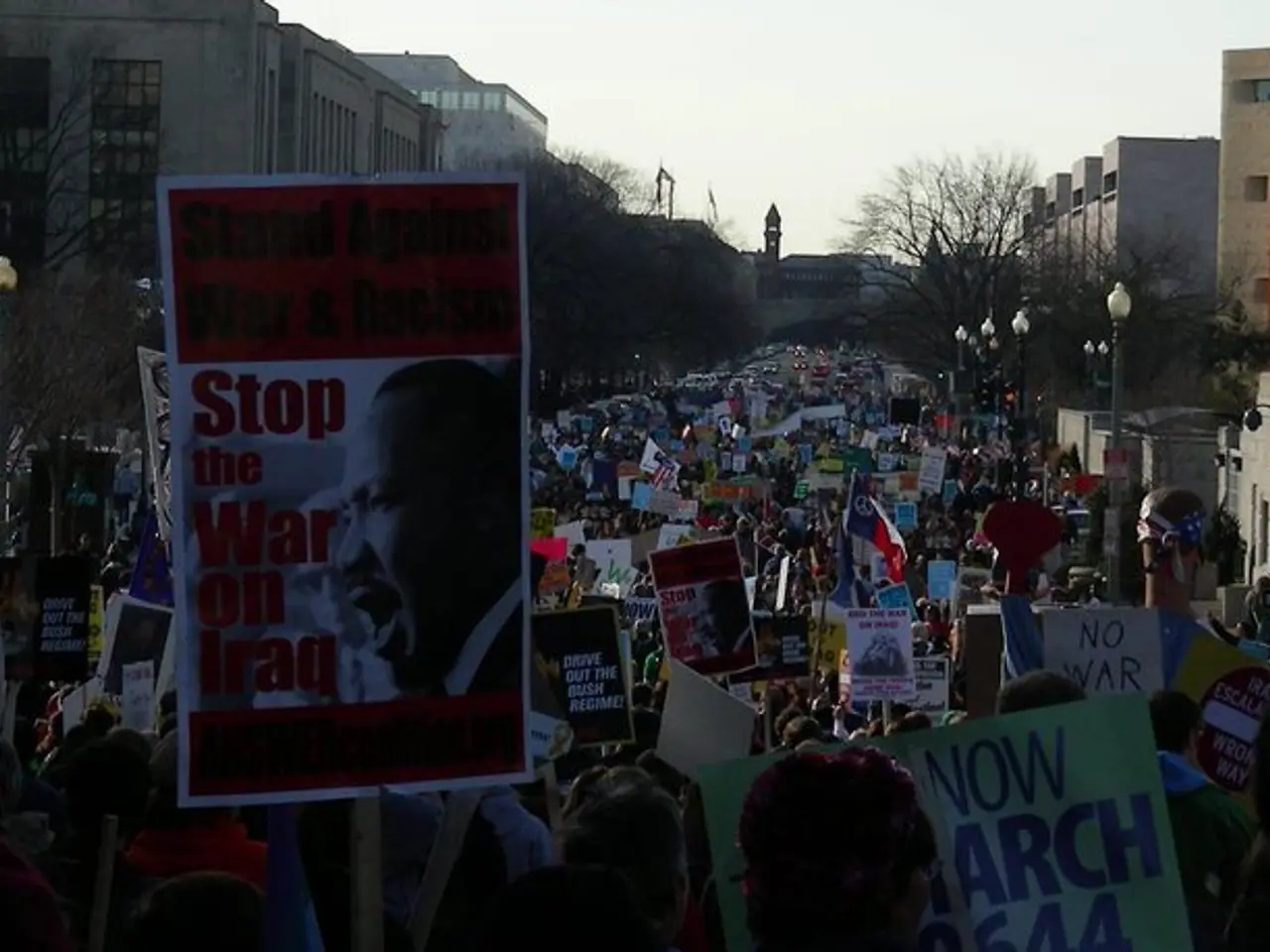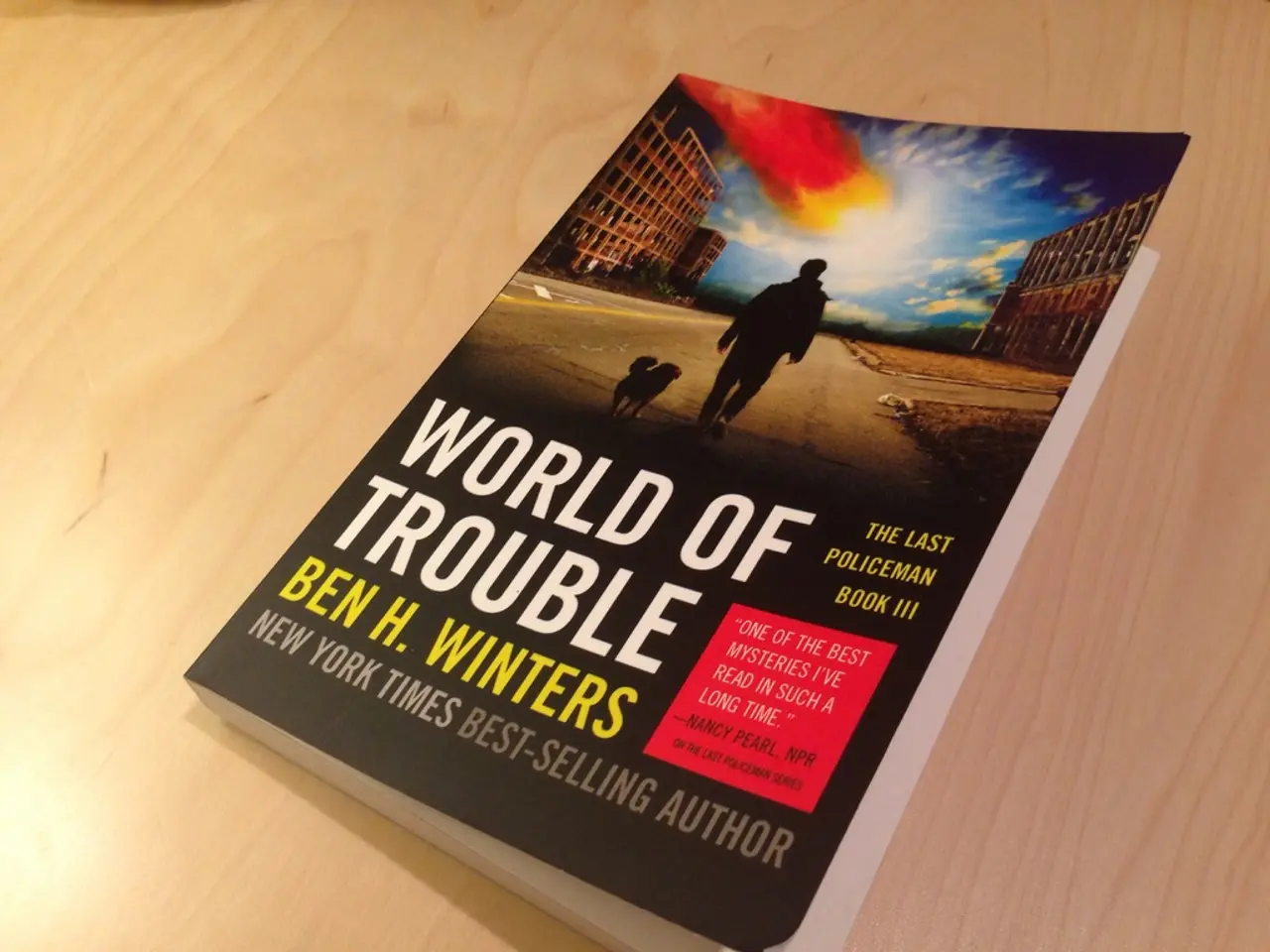Brazilian Government Threats to U.S.: President Donald J. Trump Speaks Out
President Donald Trump has taken a significant step to address Brazil's policies and actions deemed harmful to U.S. national security, foreign policy, and economy. On [date], the President declared a national emergency under the International Emergency Economic Powers Act (IEEPA), citing Brazil's "unusual and extraordinary" policies that threaten U.S. interests.
As a direct economic measure, Trump imposed a 50% tariff on Brazilian imports to the United States. This tariff, initially set to take effect in July 2025, adds a 40% additional charge to an existing 10% tariff. The tariff aims to protect U.S. companies from coercion and retaliation, penalise Brazil’s unfair trade practices, and influence Brazilian policies.
The tariff affects key exports like coffee and meat, but exceptions were made for about 694 products, including Embraer aircraft and orange juice. The move follows a Section 301 investigation launched under the Trade Act of 1974 into Brazil's alleged unfair trade practices to justify and potentially expand these trade restrictions and tariffs.
Trump's foreign policy prioritises the interests of America and its citizens, as declared in the "America First Policy Directive" signed on Day One. The President has consistently reaffirmed his commitment to defending the United States' national security, foreign policy, and economy against foreign threats.
The tariff is also a response to the Government of Brazil's coercion of U.S. companies to censor political speech, deplatform users, turn over sensitive U.S. user data, or change their content moderation policies. Justice de Moraes, a Brazilian Supreme Court Justice, has issued hundreds of orders to secretly censor his political critics and imposed fines, exclusion from the social media market, criminal prosecution, and asset freezes on companies that refuse to comply.
The tariffs are intended to protect U.S. companies from unlawful censorship and coercion, safeguard American free speech from censorship, and defend American persons from political persecution. The President has also announced a visa restriction policy targeting foreign nationals responsible for the censorship of protected expression in the United States.
The tariffs are part of President Trump's strategy to address foreign threats to the national security, foreign policy, and economy of the United States. The President has used tariffs in the past to advance America's interests and address urgent national security threats, and is doing so again today.
Preserving and protecting the free speech rights of all Americans and defending American companies from coerced censorship will remain at the forefront of President Trump's America First foreign policy strategy. The Order also establishes that these human rights abuses have undermined the rule of law in Brazil, and the President has highlighted and condemned political repression in Brazil, especially the persecution and prosecution of former Brazilian President Jair Bolsonaro and his supporters, labeling these as serious human rights abuses undermining the rule of law and democratic principles.
- The tariff imposed by President Trump on Brazilian imports is not only a response to Brazil's trade practices, but also aims to protect U.S. companies from being coerced into censoring political speech, a concern that aligns with the American First Policy Directive's focus on defending free speech.
- In addition to addressing trade issues, the tariffs on Brazilian goods are a part of President Trump's foreign policy strategy, which prioritizes protecting the national security, foreign policy, and economy of the United States. This strategy includes defending American companies from unlawful censorship and safeguarding human rights, as demonstrated by the recent visa restriction policy and the condemnation of political repression in Brazil.







